“Nothing tastes as good as skinny feels” were the controversial words of Kate Moss, the supermodel known for popularising the “heroin-chic” beauty standard of the 90s. Although we now live in an age of body positivity (leading Kate to distance herself from the infamous statement), the pressure to be slender is undeniably still felt by most women.
The volatile relationship between beauty and self-worth and how such beauty standards occasionally – if not inevitably – impact a woman’s life is at the core of the Taiwan-born photographer Yolanda Y. Liou’s practice. “In Asian culture, you need to be skinny to be considered beautiful,” she says. “Growing up, my self-worth was dependent on this. I used to go to quite extreme lengths to be thin. Depressingly, the ‘nothing tastes as good as skinny’ quote was my motto.”
Since then, Yolanda, now an award-winning photographer and London resident, has been on an ongoing path towards self-acceptance and self-love. She resists the ubiquitous capitalist-led image culture that perpetuates unrealistic beauty standards. “I realised that as a photographer, I have the power to create images rather than let images create me.”
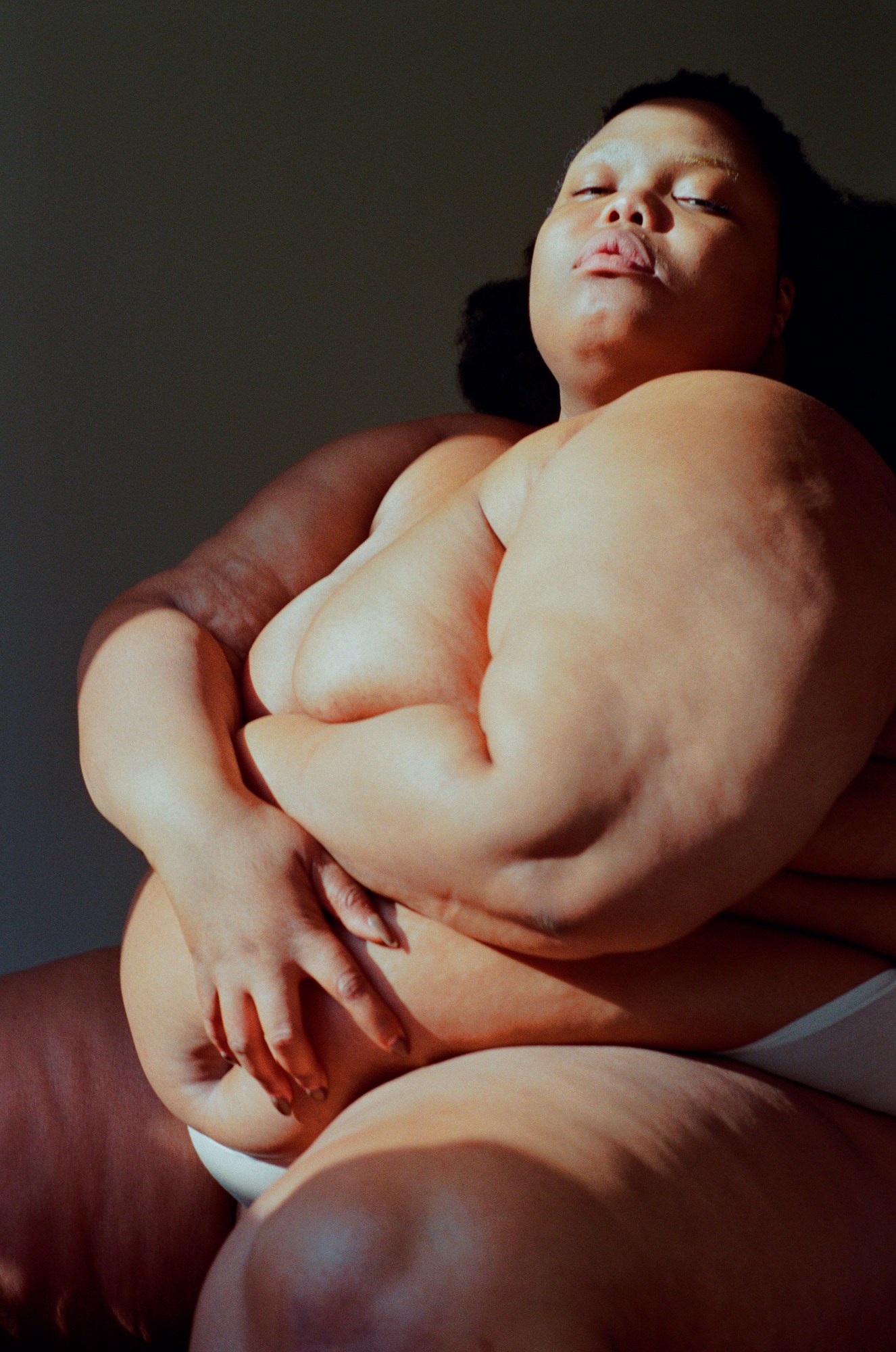
For that reason, Yolanda, in collaboration with Enam Ewura Adjoa Asiama and Vanessa Russell, developed the project Thank You For Playing With Me, soon to be co-published by Stockmans Art Books. Although Yolanda did not know best friends Enam and Vanessa before, over the course of four years, the three women formed a close and unique bond. The ensuing body of work poignantly captures shared moments of intimacy, sisterhood, and the gradual passing of time before and after the COVID-19 pandemic, during which time the women held each other’s hands through challenging life events: heartbreak, grief, pregnancy, and motherhood.
“I first came across Enam’s profile on Instagram”, Yolanda says. “I was immediately drawn to her. She seemed so beautiful and confident, and even in pictures without makeup, she glowed. I messaged her directly and asked if she’d like to meet up and do a photography project with me. She agreed, and when we met, we clicked instantly. Later, she asked if her best friend Vanessa could be on board. To which I said yes, absolutely.”
For Yolanda, it was important that Enam and Vanessa felt like creative collaborators, not merely passive subjects. “Ahead of our first shoot, I said to them, ‘I don’t want to bring in a hairstylist, makeup artist, or stylist. It felt more appropriate to let them choose how they wanted to present themselves. They are both really into fashion and makeup, so they did everything themselves. In that sense, the project was very much a collaboration between the three of us.”
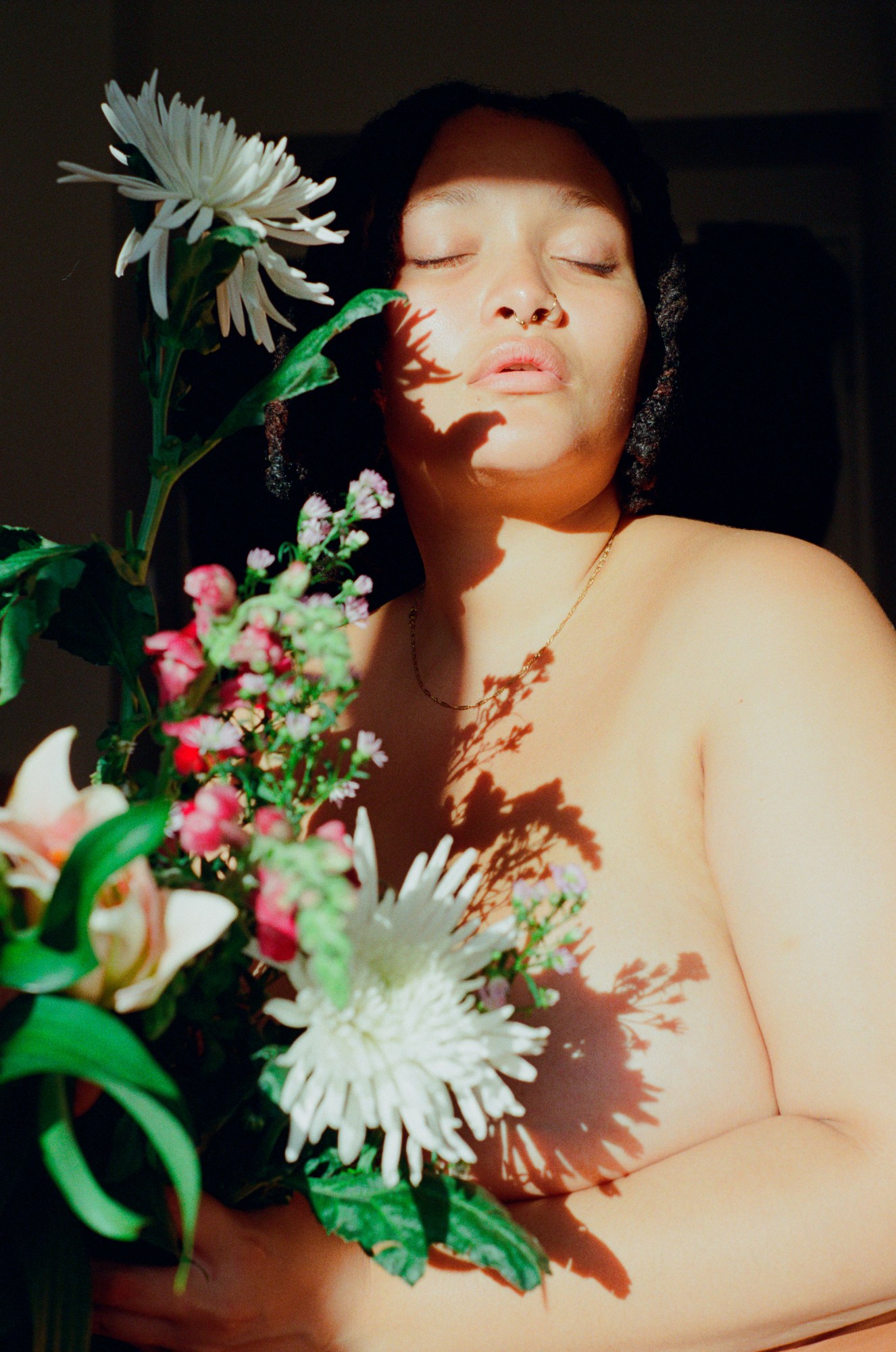
Even after the first few hours of creatively experimenting and playing together (the latter of which prompted the title of the photobook), it was clear to Yolanda that a certain kind of magic had taken place between the three of them on set. “It was empowering to allow them to take control of their image. We all contributed ideas, and we’re all in agreement about how to share any profits from the project. Our work together has always been based on trust and connection.”
In 2020, Yolanda was awarded third prize in the Taylor Wessing Photographic Portrait Prize, which put Enam (and her naked body) in the media spotlight. “I didn’t feel comfortable accepting the prize at first. Enam didn’t feel prepared to present herself in that way in front of such a large audience. I was very prepared to turn down the award,” she says. “In the end, we talked at length, and she changed her mind. Ultimately, she trusts me and wanted to go for it.”
For Yolanda, the shame attached to having a woman’s body – and not living up to ridiculously high beauty standards perpetuated by the media – propels her work as a photographer. But she is also constantly in dialogue with herself, challenging her own internal critical voice and trying to show compassion to her inner child – the teenage girl who once sought out extreme diet plans, weight loss injections, and an unhealthy relationship with the mirror.
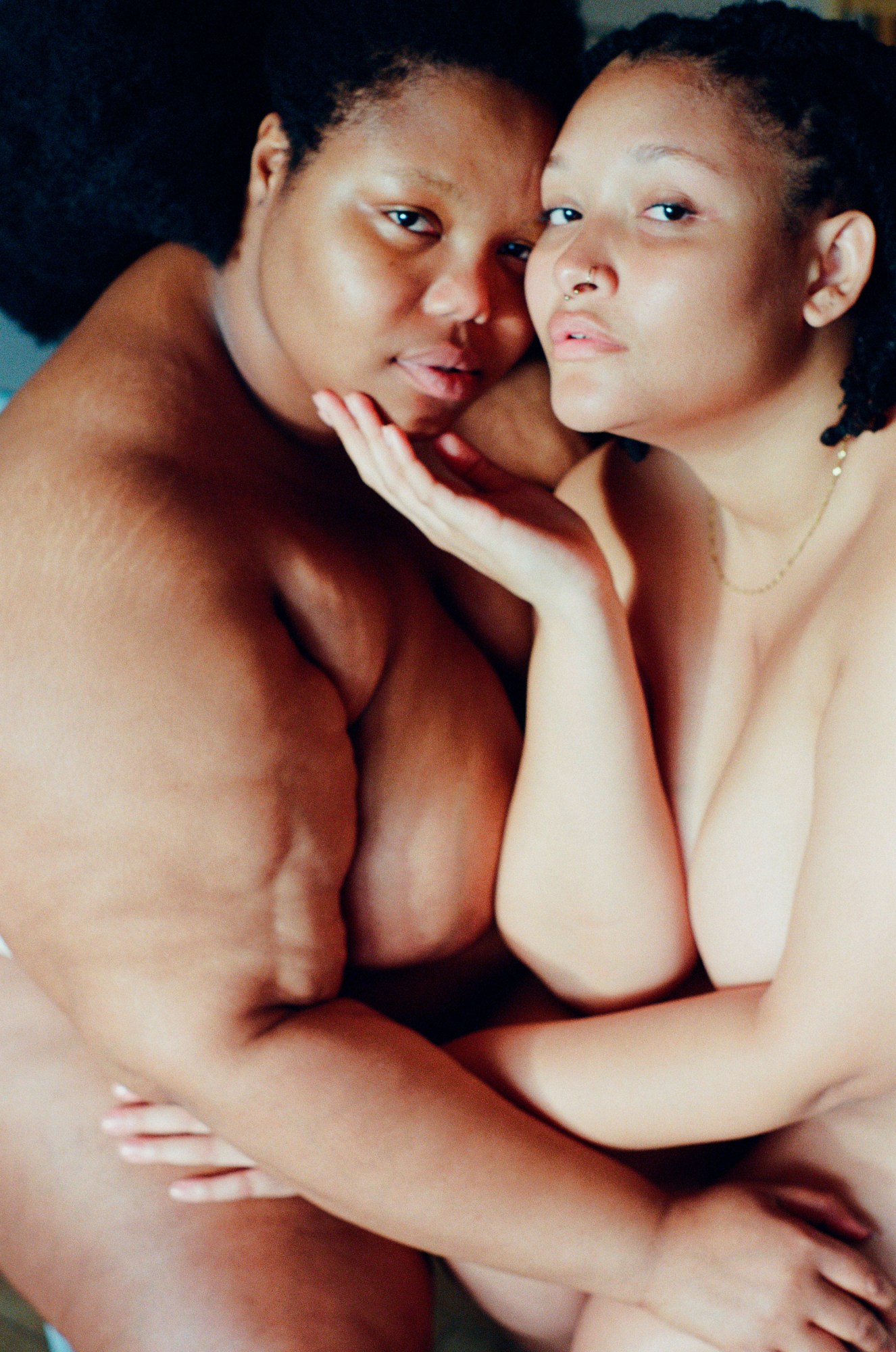
“For my last book, which explored the naked body, I spoke to women and girls as part of my research. So many of them told me they can’t even look at themselves in the mirror after showering. They feel too much shame. They’re asking themselves things like: why are my thighs so big? Like, why are my cheekbones not high enough? My work is not just about challenging the types of images we see in the media but the ways we talk to ourselves – our self-loathing. And, of course, this lack of acceptance stems from the culture we live in.”
An article published last year in The Economist titled “The economics of thinness” points to the sad reality that there is a direct correlation between wages and weight: “Myriad studies find that overweight or obese women are paid less than their thinner peers while there is little difference in wages between obese men and men in the medically defined “normal” range”. Women of colour are even more susceptible to such discrimination. “There is still so much stigma towards people who are bigger or plus size. In reality, people’s bodies work differently to one another. In the case of Enam, she’s probably a lot healthier than many people who might make negative comments or shame her.”
All Yolanda knows is that her work seeks to create a safe space for women of different body types in a world that seeks to punish them. By flipping the narrative, the photographer artfully and courageously shows that in a culture that engenders self-loathing on the path to ‘perfection’ – nothing tastes as good as radical self-acceptance.
‘Thank You For Playing With Me’ is published by Stockmans and is available to order here worldwide and for UK order here
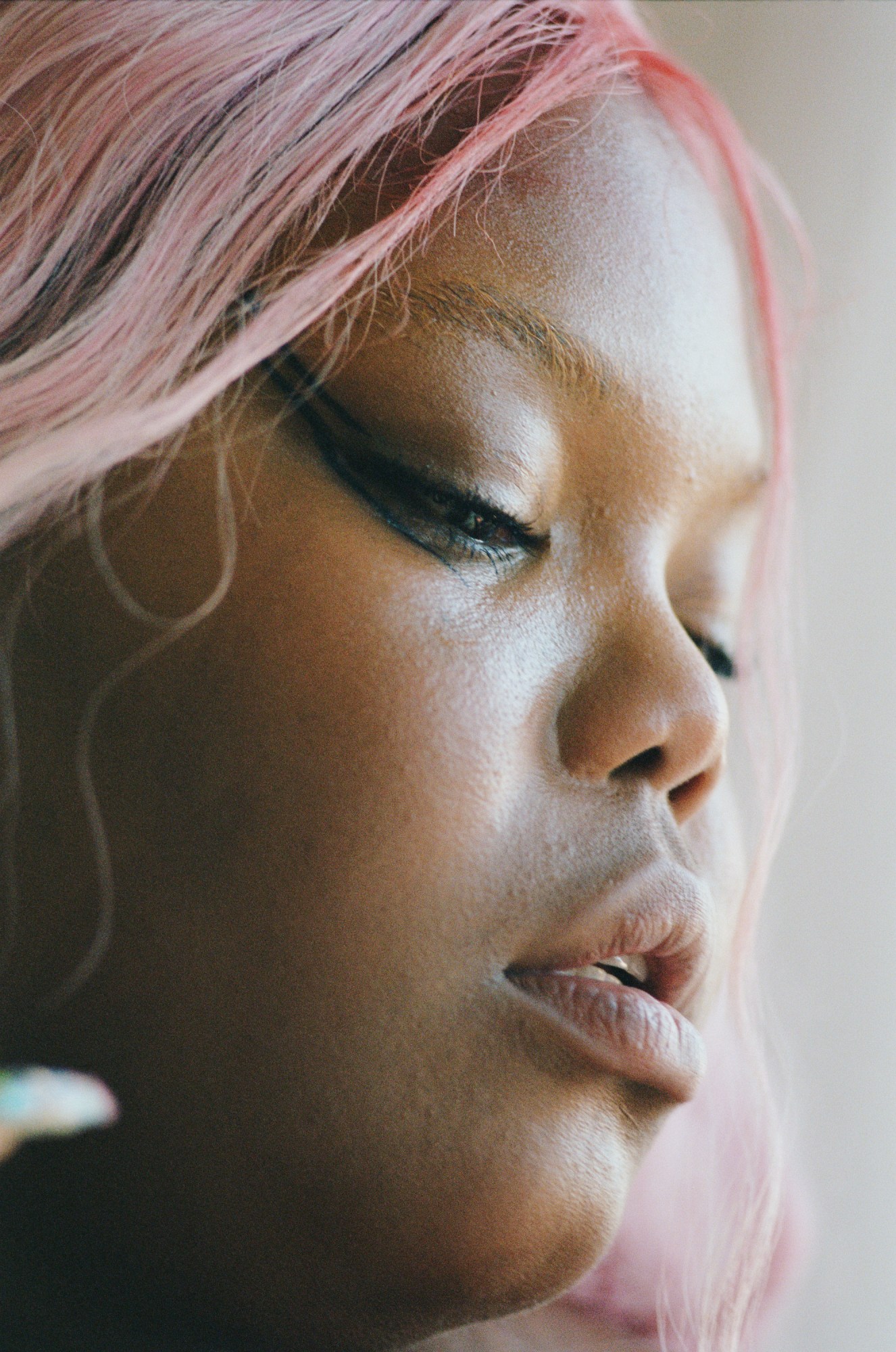
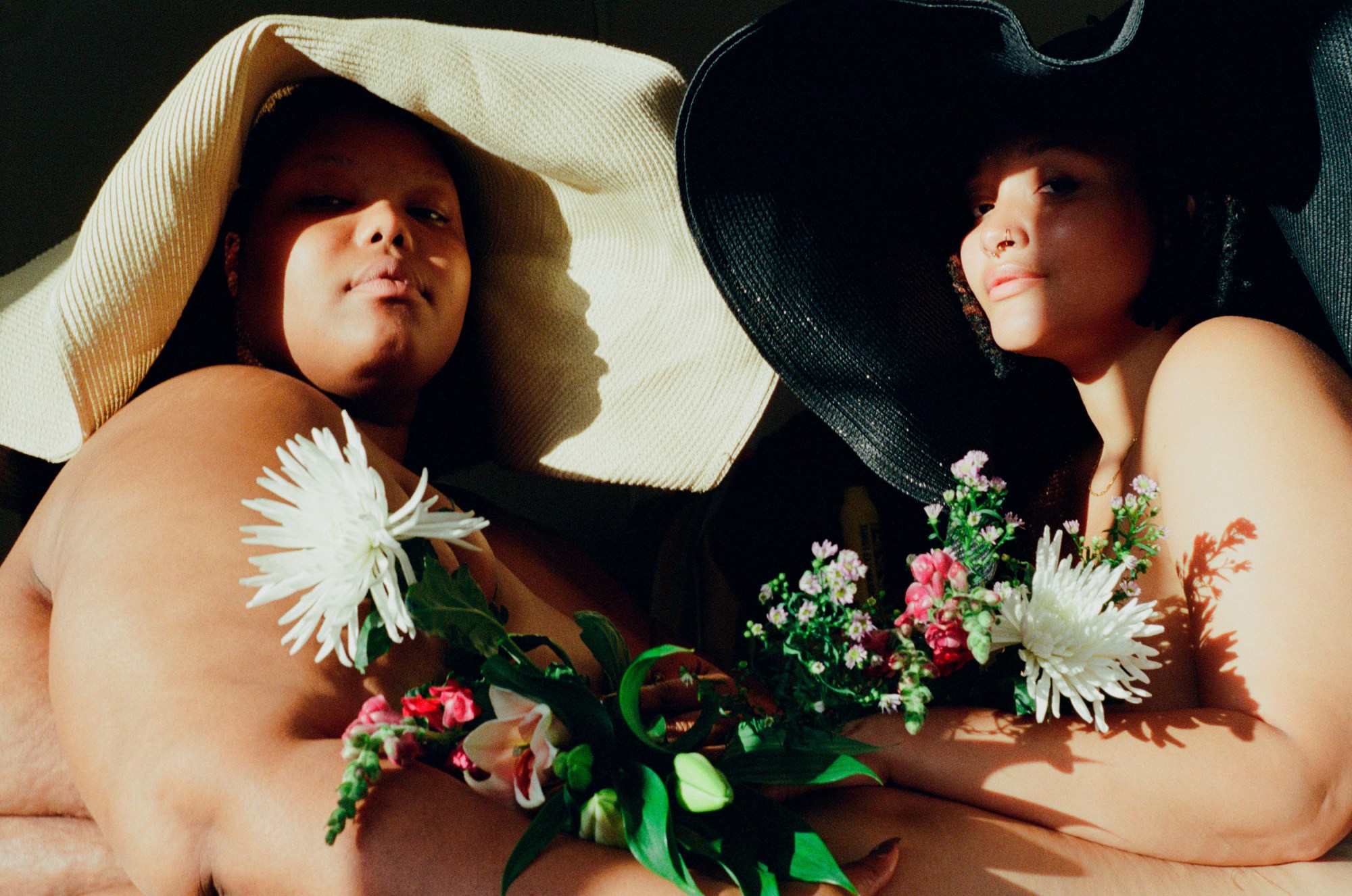
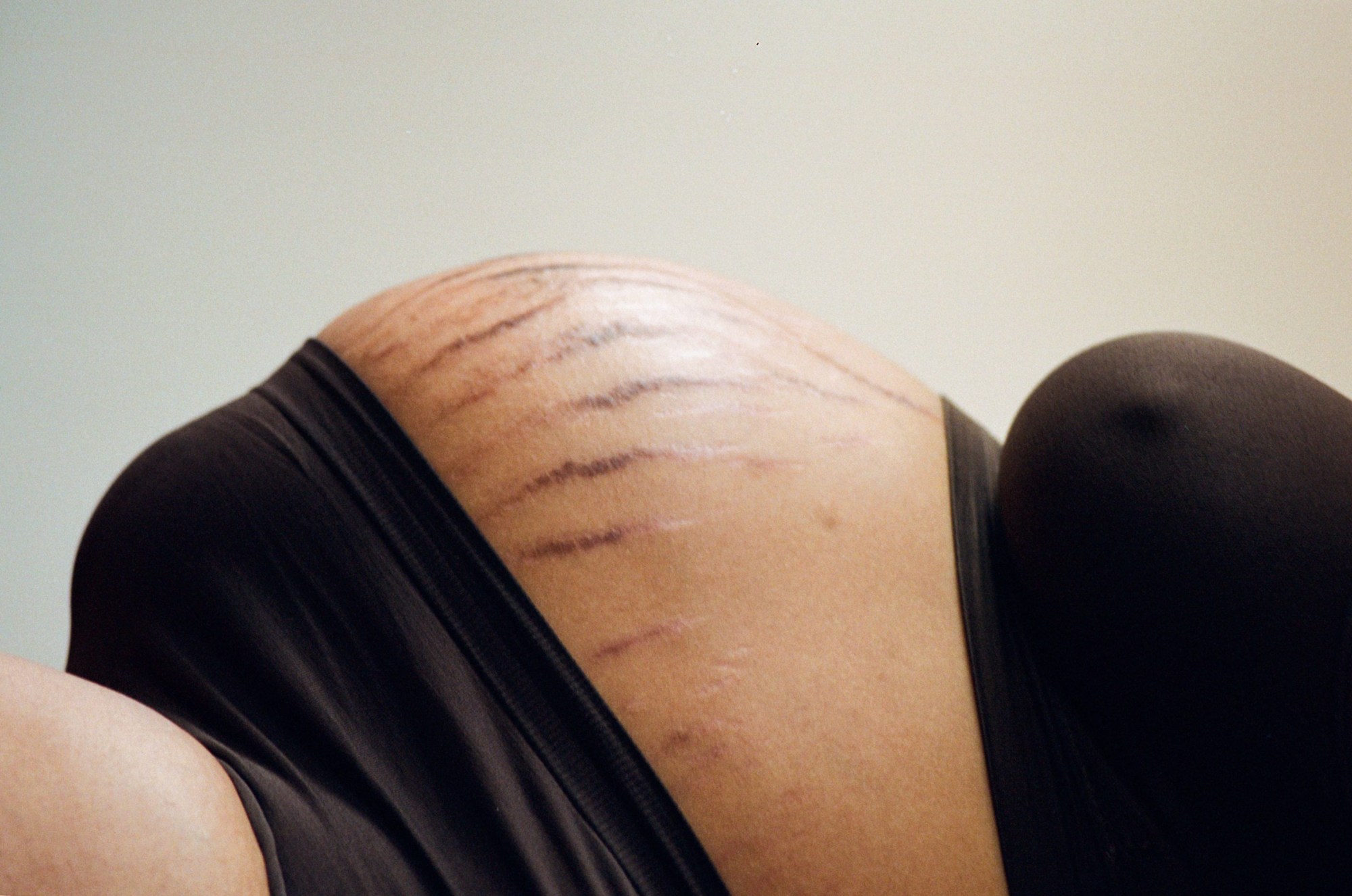
Credits
All images courtesy Yolanda Y. Liou
